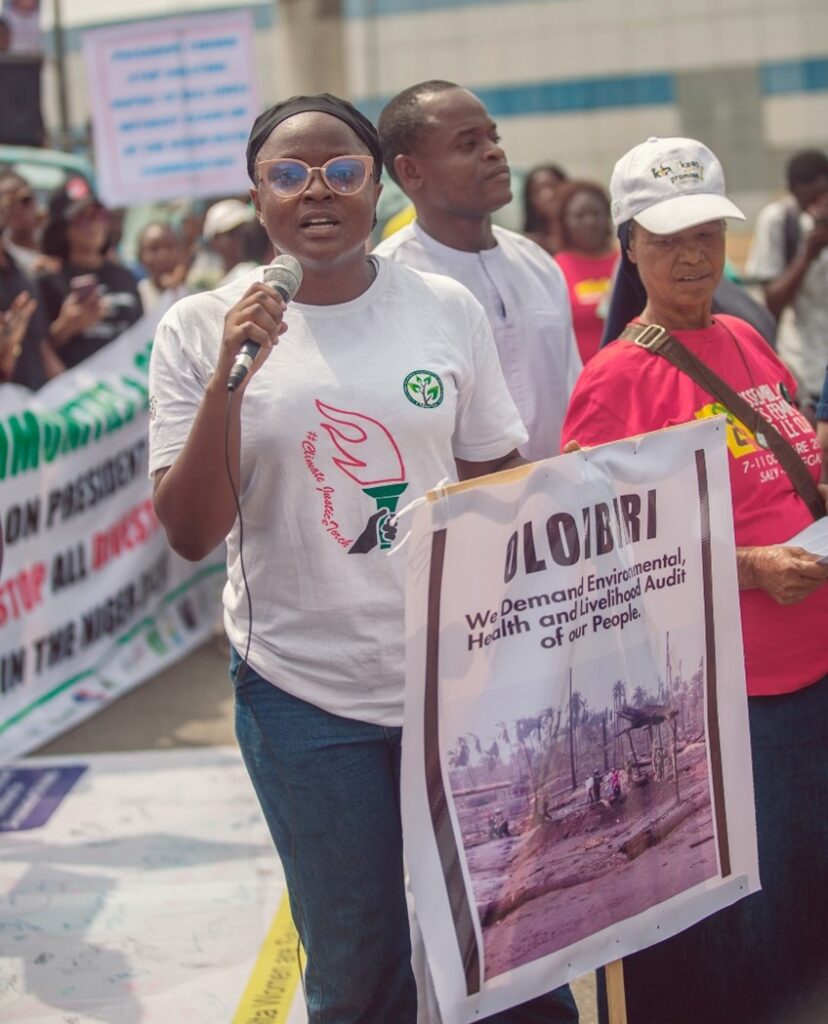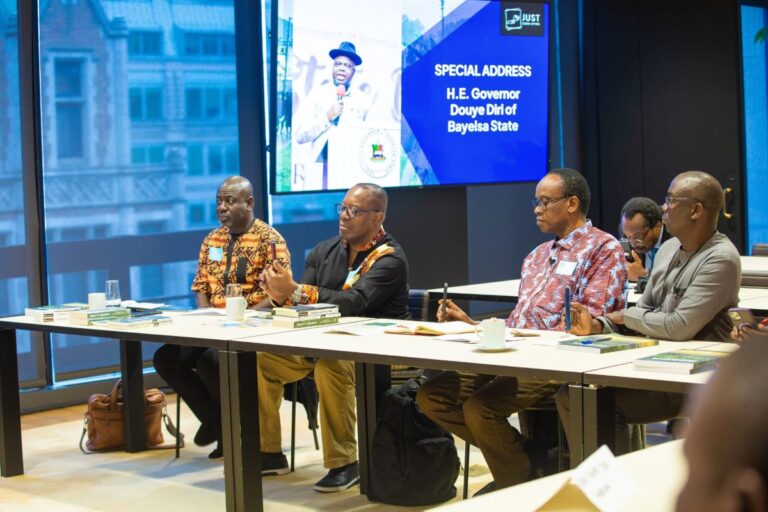Rallies Against Unjust IOC Divestments: Protestors Reversal of Shell and TotalEnergies Divestments in the Niger Delta
Locations: Port Harcourt (Rivers State) and Yenagoa (Bayelsa State)

Social Action Nigeria, in solidarity with Health of Mother Earth Foundation, Kebetkache, HEDA, the Bayelsa NGO Forum (BANGOF) and various civil society and community organizations, led protests in Port Harcourt and Yenagoa on December 17 and 18, 2024, to express outrage over the environmental and social consequences of the ongoing divestment process by International Oil Companies (IOCs), particularly Shell and TotalEnergies. The protesters demanded that President Bola Tinubu cancel the divestment of oil assets in the Niger Delta, especially Shell’s controversial sale of its shares in Shell Petroleum Development Company (SPDC) to the Renaissance consortium.
The Protests:
The protests in both cities were attended by hundreds of residents, civil society activists, women’s groups, and local community leaders from Niger Delta oil-producing regions, who expressed their solidarity with the cause and raised their voices against the environmental degradation caused by oil operations. The protesters were united in their call for President Bola Tinubu to reject Shell’s and TotalEnergies’ divestment plans until the environmental and social liabilities of the oil companies are properly addressed.
Key Points Raised During the Protests:
- Environmental Pollution and Health Crisis:
- The protesters highlighted the devastating environmental impact of decades of oil exploration in the Niger Delta, particularly Shell’s long history of oil spills, gas flaring, and toxic contamination of the air, land, and water. The communities in the Niger Delta have suffered from poisoned water sources, land rendered infertile, and a loss of biodiversity essential for local livelihoods.
- UNEP’s findings in Ogoniland were cited, showing benzene levels 900 times over the safe limits set by the World Health Organization (WHO), as well as reports from Bayelsa where chromium levels were found to be over 1,000 times WHO limits. These pollutants have caused severe health conditions, including cancers, respiratory diseases, and skin disorders, particularly affecting vulnerable populations.

- Corporate Accountability and Remediation:
- The protesters called for Shell and TotalEnergies to take full responsibility for the environmental damage they have caused and to fund comprehensive cleanup and remediation programs. Based on assessments of the United Nations Environment Programme (UNEP) and the Bayelsa State Oil and Environment Commission (BSOEC), it would take at least $100 billion to address the environmental destruction across the entire Niger Delta.
- Past divestments, such as Shell’s sale to Aiteo and ExxonMobil’s asset sales, were cited as failures in addressing these liabilities, with no proper plan for environmental remediation or for protecting the rights and livelihoods of the affected communities.

Social Action Nigeria’s Dr. Prince Edegbuo presenting the demands of the protesters
- Impact on Local Communities:
- The protesters emphasized the urgent need to halt the divestment process, as new operators who acquire these assets are often not equipped or committed to addressing the pollution legacy left by previous operators. They called for a transparent process where local communities are consulted, and their rights to a clean environment and sustainable livelihoods are upheld.
- Community leaders also raised concerns about the social consequences of these divestments, which have exacerbated poverty, displacement, and social unrest in the region.
- Women and Youth Participation:
- Women and youth in the Niger Delta were particularly vocal during the protests, highlighting the disproportionate impact of oil pollution on their health and livelihoods. In Rivers State, women organized a protest focused on the gendered impacts of oil pollution, including rising health conditions such as impotence among men and reproductive health issues among women, both linked to environmental degradation caused by the oil industry. Women’s groups also emphasized the need for profit-sharing mechanisms to ensure that local communities benefit from the oil resources they host.

Women and Youths voiced their concerns at the rallies
Key Messages from the Protests:
- Halt to All Divestments: The protesters called on President Tinubu to uphold the resolution passed by the National Assembly earlier this year, demanding a halt to all divestments until environmental and social concerns are fully addressed.
- Corporate Accountability: They reiterated the need for Shell, TotalEnergies, and other IOCs to be held accountable for the environmental damage caused by their operations and to ensure that the clean-up and remediation process is fully funded and carried out in consultation with affected communities.
- Community and Environmental Justice: The protesters insisted that the divestment process cannot continue until a fair and inclusive process is in place to ensure that the people of the Niger Delta are consulted, their voices heard, and their rights to a safe and clean environment protected.

The protests in Port Harcourt and Yenagoa reflect the growing momentum in the Niger Delta, where local communities, civil society organizations, and advocacy groups are demanding justice for the environmental destruction and health crises caused by decades of oil extraction. Social Action Nigeria, in solidarity with other organizations, remains committed to advocating for a halt to all divestments until the critical issues of corporate accountability, environmental remediation, and community welfare are fully addressed.




